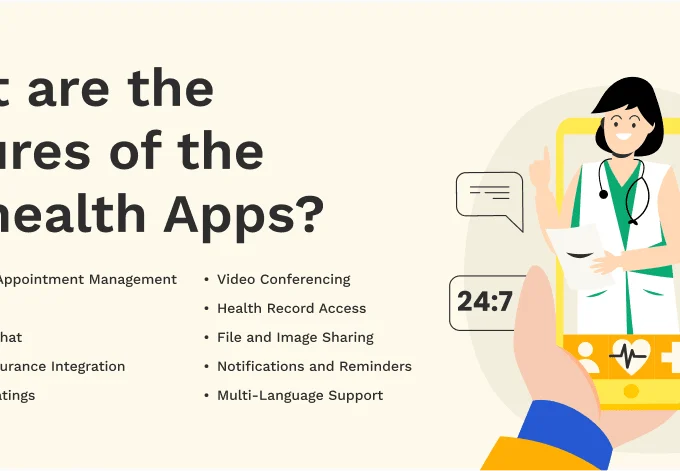In today’s world, healthcare professionals face increased demands for efficiency and better patient care. Balancing tasks and delivering quality medical services can be challenging. This is where the medical virtual assistant (MVA) is a game changer in the healthcare sector. This article delves into the role of MVAs, their advantages, and how they transform healthcare delivery. If you’re a healthcare seeking to optimize your practice and improve care, keep reading to explore how MVAs can make a difference.
So, what is a Medical Virtual Assistant (MVA)?
An MVA is a professional who supports healthcare providers with administrative and clinical responsibilities. From scheduling appointments and managing records to offering patient support and handling billing inquiries, MVAs possess the expertise to ensure operations in healthcare environments.
Medical virtual assistants are capable of performing a range of tasks, such as:
They arrange and oversee appointments, Guaranteeing that patients receive notifications and reminders.
I am managing to bill.
Insurance claims: Simplifying payment procedures for both patients and providers.
They engage with patients, provide information, and address queries to enhance the patient experience. Maintaining updated records involves data entry and record keeping. Medical virtual assistants (MVAs) support healthcare professionals in these duties, freeing their time to focus on care. Implementing MVAs offers benefits for both healthcare providers and patients.
One advantage of using MVAs is that they enhance care and experience. They ensure that patient queries are promptly addressed, resulting in a responsive healthcare experience. By handling tasks, MVAs enable healthcare providers to dedicate time to their patients, strengthening their relationships.
Another benefit is improved efficiency. MVAs are proficient in managing scheduling, billing, and other administrative responsibilities, reducing errors and delays in daily operations. By entrusting tasks to MVAs, healthcare professionals can concentrate on medical cases without distractions.
Moreover, utilizing MVAs presents opportunities for cost savings in healthcare practices. Outsourcing tasks to MVAs can reduce costs by minimizing the need for full-time staff while maintaining service quality. Additionally, MVAs help prevent billing errors and ensure accurate claims processing.
The Impact of Medical Virtual Assistants on Healthcare Transformation
The use of assistants is reshaping how healthcare services are delivered. Let’s take a look at some real-life instances where the integration of MVAs has proven to be successful:
Improving Healthcare Accessibility:
In areas with access to healthcare, such as underserved communities, MVAs are stepping in to provide remote support, ensuring patients receive timely care and assistance. For example, a rural clinic introduced MVAs to handle appointment scheduling and patient follow-ups, reducing wait times and increasing patient satisfaction.
Efficient Administrative Operations:
A bustling city hospital incorporated MVAs into its processes, reducing missed appointments and improving billing accuracy. By automating tasks, hospital staff could concentrate on providing top-notch medical care, ultimately improving patient outcomes.
Facilitating Telemedicine Services:
In the era of telemedicine, MVAs are essential for coordinating consultations and managing communications. A telehealth provider utilizes MVAs to manage consultation paperwork and post-consultation follow-ups, enhancing the patient experience and ensuring smooth virtual appointments.
Factors to Think About When Implementing Medical Virtual Assistants
While the advantages of using assistants (MVAs) are evident, there are essential factors to consider when incorporating them into healthcare settings:
Security and Privacy Concerns:
Maintaining patient confidentiality is crucial in the healthcare field. When introducing MVAs, it is vital to ensure they follow security measures and adhere to regulations. Data encryption, secure communication channels, and privacy training are steps to protect patient data.
Training and Integration with Current Systems:
Effective integration of MVAs necessitates training and seamless assimilation with existing healthcare systems. Healthcare professionals should dedicate time to training MVAs on their workflows and software tools. This ensures a transition and maximizes the benefits of MVA assistance.
Legal and Regulatory Factors:
Healthcare providers must be mindful of the regulatory obligations associated with utilizing MVAs. Validating MVAs’ credentials and qualifications is critical to ensuring compliance with national healthcare regulations. Seeking professional guidance can help navigate challenges and provide a lawful implementation process.
The Future Outlook for MVAs in Healthcare
The prospects for assistants in healthcare appear promising, with numerous exciting advancements anticipated:
Forecasts for Expansion and Development: The use of assistants (MVAs) is projected to increase as healthcare providers realize their importance in improving efficiency and patient care. Training programs and certifications for MVAs are expected to enhance their skills and capabilities.
Challenges and Opportunities
While the adoption of MVAs brings advantages, it also poses challenges. Some hurdles healthcare providers may encounter include ensuring communication between MVAs and on-site staff, safeguarding data, and addressing resistance to change. However, these obstacles also create opportunities for innovation and enhancement in healthcare services.
In Summary
Medical virtual assistants (MVAs) are transforming the healthcare sector by simplifying tasks, enhancing patient care quality, and boosting efficiency. Healthcare professionals who incorporate MVAs into their practices can focus more on providing services while cutting costs and increasing patient satisfaction.
It is time to explore their possibilities if you are considering integrating VMeDx MVAs into your healthcare practice. The future of healthcare hinges on technology advancements, with MVAs leading this transformative journey. By embracing this cutting-edge solution, healthcare professionals can stay ahead in an evolving industry and deliver exceptional patient care.
Reach out to our team of specialists to learn more about the advantages of using assistants in your practice and begin implementing MVA. Let’s collaborate to improve the healthcare landscape.












Leave a comment